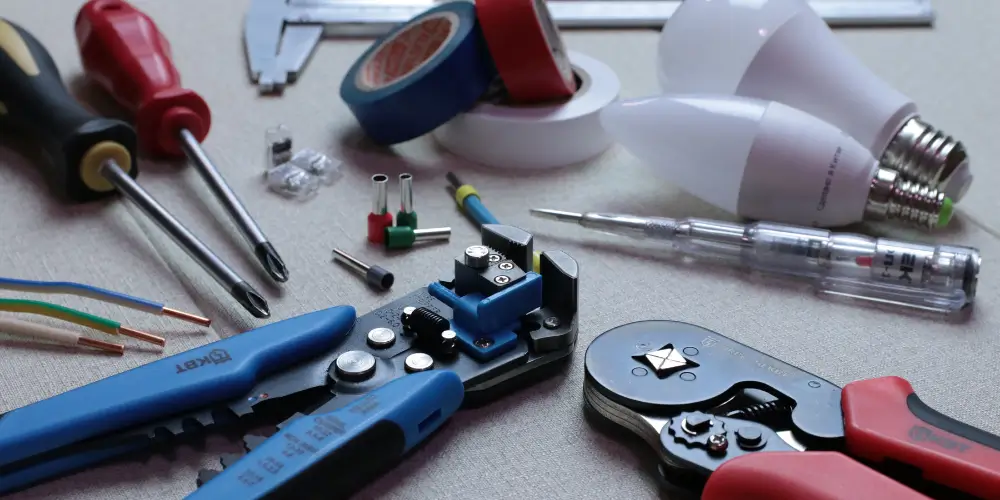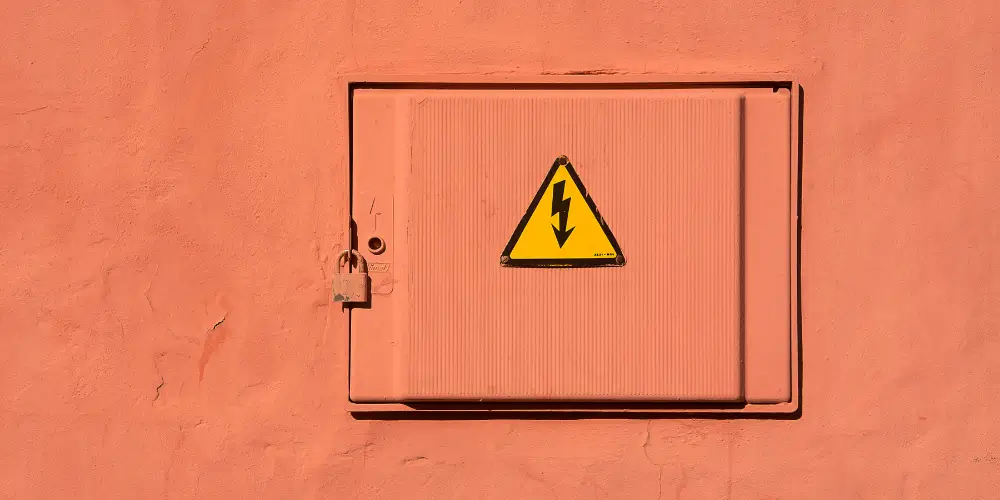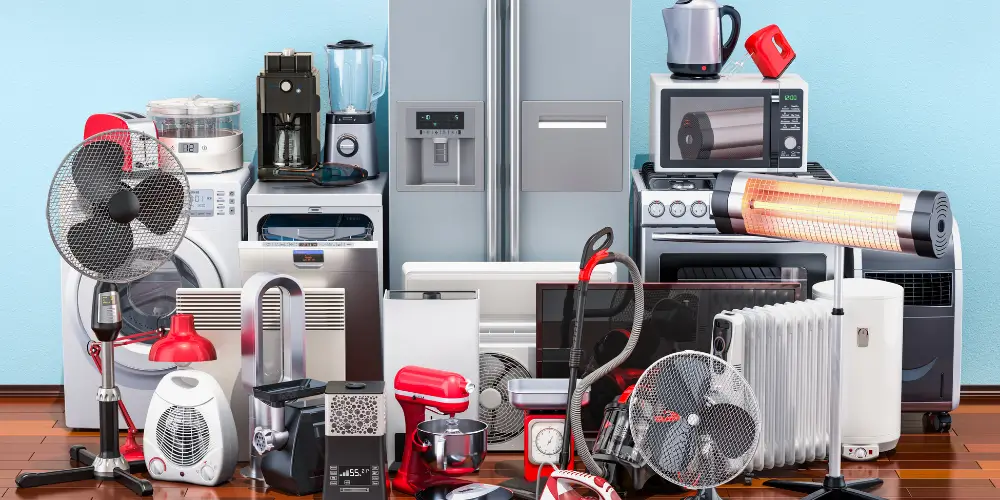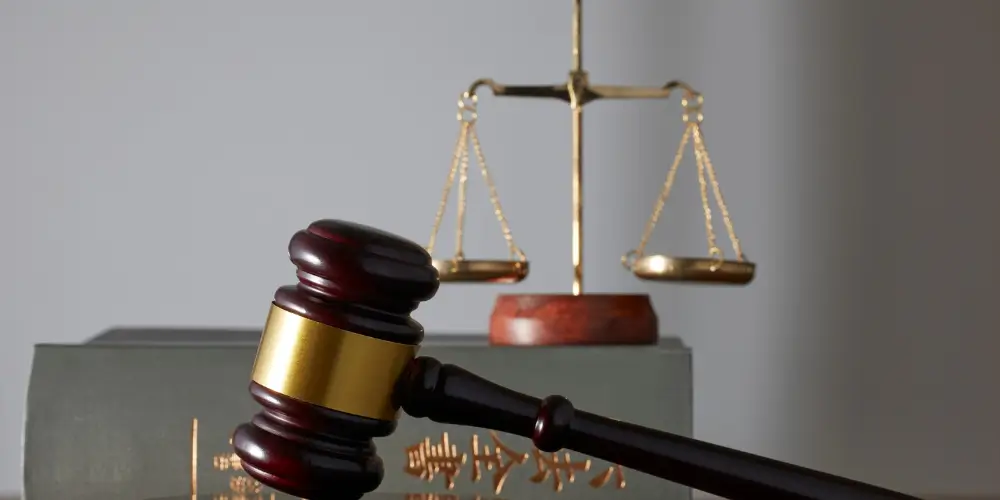As a tenant in the UK, you have specific rights regarding the electricity in your home. Your landlord is legally required to guarantee that all electrical installations are safe at the start of your tenancy and must maintain this safety throughout. They must conduct inspections every ten years, delivering an Electrical Installation Condition Report (EICR) to you, which you can view. Your right is to report any electrical issues immediately, and your landlord must address them promptly. Should there be unresolved issues, escalating the matter could further enhance your understanding of your legal protections and procedural options.
Key Takeaways
- Tenants can demand safe electrical installations and repairs under Section 11 of the Landlord and Tenant Act.
- Landlords must provide tenants with an Electrical Installation Condition Report (EICR) at the start of tenancy and every ten years.
- Tenants can report electrical issues to landlords and expect prompt fixes to ensure safety.
- In unresolved cases, tenants can escalate electrical safety concerns to local councils or seek legal assistance.
- Tenants should receive regular education on electrical safety, including proper appliance usage and emergency procedures.
Table of Contents
Understanding Your Electrical Safety Rights
As a tenant, you’re entitled to a living environment where electrical systems meet rigorous safety standards.
Your landlord is legally required to guarantee that all electrical installations are safe upon the commencement of your tenancy and maintained throughout its duration.
Understanding the importance of these safety standards is essential for protecting your rights and personal safety.
Legal Obligations of Landlords
You must understand that landlords in the UK have specific legal obligations to guarantee the electrical safety of their properties. These responsibilities aren’t just ethical and legally mandated under various housing and safety laws, designed to protect you as a tenant.
Firstly, your landlord must verify that all electrical installations – such as wiring, sockets, and light fittings – are safe when you move in and are maintained in a safe condition throughout your tenancy. This involves regular inspections and testing by a qualified electrician. The results of these checks are often recorded in an Electrical Installation Condition Report (EICR), which you have the right to access.
Failure to comply with these safety obligations can lead to severe legal repercussions for your landlord, including hefty fines or criminal charges.
As a tenant, these regulations provide you with significant protections. You’re entitled to live in a property that meets safety standards, and you can demand repairs or improvements if the electrical systems are deficient.
Additionally, if your landlord neglects these duties, they risk legal claims for potential harm or loss you might suffer as a result.
Importance of Electrical Safety
Understanding your electrical safety rights is essential for ensuring your well-being and security as a tenant. As part of your lease agreement, landlords must provide a living environment that adheres to the strictest electrical safety standards, which includes regular inspections and necessary repairs or updates to the electrical systems.
Electrical safety awareness isn’t just about avoiding immediate hazards; it’s about creating a culture of safety that protects you and your community. Here are key aspects to take into account:
Regular Inspections
These are vital to detect any potential electrical issues before they become hazardous.
Immediate Reporting
You should report any electrical faults promptly – your safety could depend on it.
Tenant Education Programs
Participating in these can equip you with the knowledge to identify risks and take preventative measures.
Community Safety Initiatives
These initiatives can foster a safer living environment for everyone.
Landlords must adhere to the Electrical Safety Standards in the Private Rented Sector (England) Regulations 2020, ensuring that every electrical installation in their rental properties is inspected and tested by a qualified person at least every ten years.
You can ask for a current report if you are unsure about your home’s electrical safety.

Landlord Responsibilities for Electrical Safety
As a tenant, you’re entitled to know that your landlord must conduct regular electrical inspections.
They’re legally required to guarantee all electrical installations are safe when you move in and are maintained throughout your tenancy.
Additionally, your landlord must provide you with a copy of the latest electrical safety certificate.
Regular Electrical Inspections
While landlords must guarantee the safety of rented properties, they’re specifically required to arrange for regular electrical inspections every ten years. This stringent regulation is at the heart of securing your protection and peace of mind in your rented home.
You should be aware that these regular checks aren’t merely suggestions but are mandated by law under the Electrical Safety Standards in the Private Rented Sector (England) Regulations 2020.
Here’s why this matters to you:
- Prevents Hazards: Regular inspections catch potential hazards before they escalate into serious issues.
- Secures Compliance: Your landlord must comply with these safety standards, giving you a layer of protection.
- Enhances Transparency: Knowing your rights to these inspections empowers you to demand compliance.
- Boosts Confidence: Living in a property that meets safety inspection guidelines can provide peace of mind about your living conditions.
As a tenant, you have the right to see the report from these inspections.
This transparency ensures that you’re informed about the electrical safety of your dwelling.
Providing Safety Certificates
Building on the requirement for regular electrical inspections, landlords must also provide you with an Electrical Safety Certificate after each review. This certificate is a pivotal part of the safety certification process, proving that your rented property meets UK law’s stringent electrical compliance regulations.
The certificate must detail any defects found and the remedial actions taken, ensuring ongoing compliance and enhancing tenant safety awareness. You should receive this document no later than 28 days after the inspection. It’s your right to access this certification, which confirms the safety of the electrical installations and informs you of any potential risks.
Furthermore, landlords must maintain copies of the Electrical Safety Certificate for at least ten years. They must provide each new tenant a copy before occupying the property. You can request to see this document at any time during your tenancy.
Tenant Responsibilities in Electrical Safety
As a tenant, you’re legally obligated to report any electrical issues to your landlord promptly to guarantee they can address potential hazards.
You must also guarantee the safe use of all electrical appliances, adhering to the manufacturer’s guidelines and not overloading sockets.
Failure to comply with these responsibilities can endanger your safety and potentially lead to legal repercussions.
Reporting Electrical Issues
In the UK, tenants must legally report electrical issues to their landlords immediately. This duty guarantees that you maintain a safe living environment and assists in the upkeep of the property.
Establishing effective tenant communication channels is essential for swiftly resolving these issues. You should familiarise yourself with the reporting procedures outlined in your rental agreement, which usually require you to notify your landlord in writing or through designated digital platforms.
Understanding your role in electrical maintenance can prevent potential hazards and contribute to the longevity of the property’s electrical systems.
Here are the key points to remember:
- Promptness: Delaying can exacerbate the problem, leading to more significant damage or even personal injury.
- Accuracy: Provide detailed descriptions of the issue, helping speed up the repair process.
- Documentation: Keep records of your reports and any communications regarding the issue.
- Follow-up: If the issue isn’t addressed promptly, follow up. It’s your right to live in a safe and well-maintained environment.

Safe Use of Electrical Appliances
You have a significant role in guaranteeing the safety of your living environment by using electrical appliances responsibly. As a tenant, your obligations include proper appliance use and adherence to safety norms to prevent hazards. Selecting energy-efficient appliances that comply with the latest safety standards is essential. These devices reduce your energy consumption and diminish the risk of electrical accidents.
Regular maintenance of these appliances is essential. Follow these appliance maintenance tips to guarantee they operate safely and efficiently:
| Maintenance Action | Purpose | Frequency |
| Inspect power cords | Check for fraying or damage | Every 12 months |
| Clean appliance vents | Prevent overheating | Every 12 months |
| Test appliance functions | Verify operational safety | Annually |
| Check safety seals | Verify intact seals | Every 12 months |
| Review energy efficiency | Confirm efficient operation | Every 12 months |
Additionally, safe extension usage is necessary. Don’t overload power strips or use extensions as permanent wiring. This practice prevents electrical overloads and potential fire hazards. By following these guidelines, you contribute to a safer living space and uphold your responsibilities as a conscientious tenant.
Access to Electrical Safety Reports
As a tenant, you have the right to request and review electrical safety inspection reports from your landlord.
Understanding the findings of these reports is essential, as they detail the safety and compliance of electrical installations in your residence.
Ensure you’re informed of any potential electrical hazards and the corrective actions outlined in the report.
Requesting Inspection Reports
Tenants in the UK have a fundamental right to request access to electrical safety reports. As a tenant, you can guarantee that your living environment is safe and meets all eicr legal requirements. Understanding the intricacies of tenant inspection requests, addressing report accessibility issues, and becoming familiar with the terminology used in these reports are essential steps in asserting your rights.
When you request an electrical safety report, it’s imperative that the process is straightforward and respects your legal entitlements. Here are some key points that evoke the importance of these rights:
Empowerment
Knowing the condition of your home’s electrical systems gives you the power to demand repairs and guarantee safety.
Transparency
Access to these reports fosters a transparent relationship between you and your landlord, minimising conflicts.
Security
Guaranteeing electrical compliance protects you from potential hazards, contributing to your peace of mind.
Legal Assurance
These reports aren’t just paperwork; they protect against legal and health risks associated with non-compliant electrical setups.
Mastering the terminology and processes related to electrical safety inspections isn’t just about legal compliance—it’s about taking proactive steps to safeguard your living conditions.
Always insist on clarity and full disclosure to protect your interests effectively.
Understanding Report Findings
Having established your right to access electrical safety reports, it’s equally essential to comprehend the findings contained in these documents. These reports detail the compliance checks conducted, guaranteeing that the electrical installations meet the required safety standards. Each segment of the report offers insights into potential hazards and the condition of the electrical systems within your residence.
Firstly, you’ll encounter sections outlining the scope of the inspection, including which circuits and equipment were tested. Understanding this scope is essential as it directly impacts the thoroughness of the safety assessment.
The main body of the report will list any defects found, categorised by their level of risk. These range from ‘Code 1’ (immediate danger) to ‘Code 3’ (improvement recommended). Grasping the implications of these codes is fundamental for discussions with your landlord about necessary repairs or upgrades.
Finally, the report summarises the overall electrical safety status, specifying whether the property complies with current regulations. If non-compliances are noted, it’s essential to prioritise these discussions. This guarantees any critical issues are addressed promptly, safeguarding your living environment.

Addressing Electrical Hazards
As a tenant, you have an essential role in maintaining the safety of your residence by promptly reporting any electrical hazards to your landlord.
Your landlord is legally obligated to address these issues swiftly and guarantee that all electrical systems are safe and functional.
Failure to do so can lead to legal consequences for the landlord under UK housing laws.
Landlord’s Duty to Repair
When electrical hazards arise in your rented property, your landlord is legally obligated to address these issues promptly and effectively. Under UK law, your landlord must guarantee that the electrical systems and appliances provided are safe and in good working order throughout the tenure of your lease.
Failure to do so can be considered landlord negligence.
To protect your rights and maintain safety, you’re entitled to:
- Demand urgent repairs: Electrical faults can pose serious risks. Immediate action is required, and repair timelines should be short.
- Seek tenant compensation: Compensation might be due if negligence leads to personal harm or damage to your belongings.
- Report unresolved issues: You can report to local authorities if the landlord fails to make necessary repairs, triggering potential legal consequences for them.
- Move out: In severe cases, where living conditions become untenably unsafe, seeking alternative accommodation might be necessary, and you could be eligible to terminate your lease early without penalty.
You must document all communications with your landlord regarding electrical faults. This documentation can be significant in legal actions concerning landlord negligence and tenant compensation.
Tenant’s Role in Maintenance
While landlords bear the primary responsibility for guaranteeing the safety and maintenance of electrical systems, you, as a tenant, also play a significant role in maintaining these systems.
Understanding your tenant maintenance responsibilities, which primarily involve monitoring and reporting, is essential. You’re the first line of defence against potential hazards. Regularly inspect your living area for any signs of electrical issues, such as frayed wires, malfunctioning outlets, or persistent electrical surges.
When you spot a problem, effective communication with your landlord is key. Promptly report electrical faults, detailing the issue clearly and providing any evidence you might have, such as photos or videos.
This guarantees your safety and helps maintain the property in good condition, potentially preventing more significant issues.
Handling Electrical Emergencies
You must take immediate action in an electrical emergency to guarantee your safety.
You should familiarise yourself with your landlord’s emergency protocols, which are designed to provide clear instructions during such incidents.
You must precisely understand and follow these guidelines to mitigate risks and comply with legal expectations.
Immediate Actions for Tenants
Suppose you encounter an electrical emergency in your rental property. If it’s safe, your first step should be to shut off the main power to prevent further hazards.
After powering down, immediately contact your landlord or property manager, utilising the emergency contact procedures provided. You must be familiar with these procedures before an incident occurs.
Understanding your energy bills isn’t just about budgeting; it’s also about recognising sudden surges that may indicate faulty wiring or an impending failure.
Regular electrical safety training can empower you to identify potential dangers and respond effectively. Here’s how you should proceed:
- Stay calm and assess the situation: Quick thinking could prevent a disaster.
- Avoid water contact: Electricity and water are a lethal combination. Steer clear of wet areas.
- Do not touch exposed wires: Even without visible sparks, exposed wires can be live and dangerous.
- Document the issue: Take photos or notes about the situation once safe. This documentation can be essential for repair verification and ensuring accountability.
Always remember, your safety is paramount.
Don’t hesitate to evacuate and call emergency services if the situation seems beyond your control.

Landlord’s Emergency Protocols
After you’ve taken the immediate steps to handle an electrical emergency in your rental property, it’s essential to understand your landlord’s responsibilities in these situations.
To begin with, your landlord must provide you with clear tenant emergency procedures and guarantee you have access to landlord emergency contacts. This includes a direct line to them or their appointed representative, who can promptly mobilise an electrical outage response.
In an electrical emergency, such as a power outage or exposed wiring, your landlord must act swiftly to mitigate any potential harm or inconvenience to you.
This response should be detailed in your tenancy agreement or a separate emergency protocol document. It typically includes the timeframe within which the landlord or a qualified professional will address the emergency, their steps, and how they intend to keep you informed throughout the process.
Electrical Safety in Shared Accommodations
As a House in Multiple Occupation (HMO) tenant, you’re legally entitled to expect that your landlord meets stringent electrical safety standards.
You must understand that cooperation among tenants is vital for maintaining these standards and reporting any electrical issues promptly.
Responsibilities in HMOS
In the context of HMOS (Houses in Multiple Occupation), you, as a landlord, bear specific legal responsibilities regarding electrical safety. This isn’t just about compliance; it’s about ensuring a safe living environment for your tenants. Your obligations are defined under various regulations and require meticulous attention to detail.
Here are essential points you must address:
- Regular Electrical Inspections: You must arrange for a qualified electrician to carry out an Electrical Installation Condition Report (EICR) every ten years. This document proves your commitment to safety and is vital for legal compliance and tenant peace of mind.
- Safety of Appliances: You’re responsible for ensuring all provided electrical appliances are safe and regularly maintained. This includes routine checks and immediate repairs if faults are detected.
- Immediate Response to Hazards: Any reported or observed electrical hazards must be promptly addressed. This proactive approach prevents accidents and underscores your dedication to tenant safety.
- Clear Communication: Maintain open lines of communication regarding electrical safety policies. Tenants should know who to contact immediately if an issue arises, reinforcing a trustworthy landlord-tenant relationship.
Tenant Cooperation
While landlords bear the primary responsibility for guaranteeing electrical safety in HMOS, you, as a tenant, also play an essential role. Your obligations extend beyond mere compliance; they necessitate proactive engagement and diligent safety cooperation. You must understand these responsibilities clearly to maintain a safe living environment.
Firstly, you must promptly report any electrical issues or hazards to your landlord. This isn’t just advisable; it’s a significant component of your tenant obligations that guarantees problems are addressed before they escalate. Effective landlord communication is your tool here. You mustn’t undertake unauthorised electrical repairs, which could lead to profound legal and safety implications.
Secondly, verify that your appliances comply with safety standards. Introducing non-compliant devices into the property can jeopardise the electrical system’s integrity, posing a risk to all occupants.
Moreover, participate in regular safety checks when arranged by your landlord. Attendance isn’t just courteous—it’s a vital aspect of your safety cooperation, providing you and your landlord peace of mind regarding ongoing electrical safety.
Adhering to these practices guarantees your safety and solidifies a positive landlord-tenant relationship anchored in mutual respect and cooperation.
Dispute Resolution Over Electrical Issues
When you encounter electrical issues in your rental property, your initial step should be to inform your landlord in writing, detailing the problem and requesting timely repairs.
You may need external assistance if the landlord doesn’t respond or the issue isn’t resolved. Options include contacting local council housing teams or consulting legal advisors specialising in tenant rights.
Communicating with Landlords
If you encounter electrical issues in your rented property, it’s vital to communicate effectively with your landlord. Mastering effective communication strategies guarantees your safety and legally safeguards your rights as a tenant.
Initially, you should inform your landlord of the issue in writing, providing a clear and detailed description. This step is significant in documenting conversations, which may become critical if disputes arise later.
Understanding tenant rights is fundamental. As UK law mandates, you’re entitled to a safe living environment. Should your landlord fail to address the electrical issues promptly, this documentation will indicate your proactive stance and their negligence.
Here are key strategies to enhance your communication:
- Document Every Interaction: Keep records of all communications with your landlord about the electrical issues, including emails, texts, and written notices.
- Use Precise Language: Be specific about the problems and the expected resolution. Avoid vague descriptions.
- Follow Up Regularly: If initial communications go unanswered, follow up. Persistence shows the seriousness of the issue.
- Know Your Rights: Educate yourself about legal provisions related to rental properties and electrical safety. This knowledge empowers you to assert your rights effectively.
Adhering to these practices will place you in a stronger position to resolve electrical issues swiftly and legally.
Seeking External Assistance
If your attempts to resolve electrical issues directly with your landlord fail, you may need external assistance. Understanding your rights and the pathways available for dispute resolution is vital in such scenarios.
First, consider contacting local advocacy groups that specialise in tenant rights. These organisations can provide expert advice and may also have the capacity to mediate disputes between tenants and landlords.
If the issue escalates, legal aid services offer a valuable resource. Many legal aid organisations provide free or low-cost services to individuals qualifying under certain income thresholds. They can offer legal representation or advice on housing laws and tenant rights concerning utility disputes.
Gathering all relevant documentation and communication records related to your electrical issues is essential before consulting with legal professionals.
Do not overlook the potential of external support options such as a local councillor or a community legal clinic. These entities often have established procedures for handling tenant disputes. They can sometimes exert informal pressure on landlords to act by the law.
Understanding Appliance Responsibilities
As a tenant, you are responsible for maintaining and repairing your appliances. In contrast, your landlord must keep what they have provided.
This distinction is essential in understanding your rights and obligations under UK tenancy laws.
To avoid disputes, verify that you check your tenancy agreement for specific provisions regarding appliance responsibilities.

Landlord-Provided Appliances
Many tenants are often surprised to learn that landlords must guarantee all provided appliances are safe and in good working order throughout the tenancy. This responsibility stems from stringent landlord obligations to comply with appliance maintenance and uphold rigorous safety standards.
It’s vital that you, as a tenant, understand these obligations to safeguard your safety and be aware of your rights should these standards not be met.
Here are key points to take into account regarding landlord-provided appliances:
Safety First
Every appliance must meet the UK’s safety regulations at the start and throughout your tenancy.
Prompt Repairs
If an appliance breaks down, your landlord must repair or replace it promptly to avoid inconvenience.
Regular Inspections
Landlords should schedule regular inspections to guarantee ongoing compliance with safety standards.
Clear Communication
Make sure you have a straightforward way to report any appliance issues directly to your landlord or their designated representative.
Understanding these points helps you maintain a safe and comfortable living environment.
Tenant-Owned Appliances
While landlords carry specific responsibilities for the appliances they provide, you, as a tenant, also have essential duties regarding your appliances.
It’s essential to understand your responsibilities regarding tenant appliance maintenance. This includes regularly checking and servicing your appliances to guarantee they function safely and efficiently. You should keep records of any maintenance and repairs done, as these can be significant in case of disputes or insurance claims.
Additionally, if you’re considering tenant electrical upgrades, seeking the landlord’s permission in writing before undertaking any modifications is essential. Unauthorised alterations could lead to legal complications or affect your tenancy agreement. Always use a certified electrician to comply with UK electrical safety regulations.
Investing in tenant safety education can significantly mitigate risks associated with improper use or maintenance of your appliances. Knowledge of basic electrical safety, understanding the warning signs of appliance malfunction, and knowing how to respond in an emergency are all critical elements of preventing accidents and maintaining a safe living environment.
Staying Informed About Electrical Safety
As a tenant, you must verify you’re regularly updated on the state of your home’s electrical systems and seek professional checks as mandated by UK housing regulations.
You should utilise resources from local housing authorities or trusted online platforms to understand your rights and the landlord’s obligations.
This proactive approach is essential for maintaining safety and avoiding legal issues related to electrical faults.
Regular Updates and Checks
Ensure you stay well-informed about the latest electrical safety regulations and your landlord’s responsibilities for keeping electrical systems up to standard.
Regular updates and checks aren’t merely procedural—they are vital for guaranteeing your safety and the efficiency of your home’s energy use. As a tenant, you can demand a safe living environment, including up-to-date and fully functional electrical systems.
Here are the key aspects that you should monitor:
- Electrical Maintenance Tips: Regularly check that your landlord schedules professional inspections of all electrical installations. This prevents potential hazards and promptly addresses any wear and tear.
- Tenant Safety Practices: Learn how to handle electrical emergencies. Knowing what to do in such scenarios can mitigate risks.
- Energy Efficiency Awareness: Understand how energy-efficient appliances and lighting can reduce electricity bills and contribute to environmental conservation.
- Inspection Transparency: Guarantee that your landlord provides you with reports from electrical inspections. This transparency builds trust and guarantees compliance with safety standards.
Stay proactive to safeguard your well-being and optimise your living conditions.
Utilising Available Resources
Numerous resources are available to help you stay informed about electrical safety as a tenant. It’s crucial to leverage these to guarantee that your living space adheres to the highest safety standards and regulations.
Begin by consulting the official guidelines from the UK’s Electrical Safety Standards in the Private Rented Sector. These documents provide a thorough overview of the legal requirements your landlord must meet.
Additionally, explore energy efficiency tips to improve safety and reduce electric bills. Resources like the Energy Saving Trust offer advice on efficient appliance use and energy conservation techniques.
Understanding alternative energy sources can also play a pivotal role. Websites detailing solar, wind, and hydroelectric options provide insights on sustainable energy solutions that could be advocated for in your tenancy.
This knowledge empowers you to make informed decisions and effectively address discrepancies with your landlord.
Tenants’ Right to Complain to the Council
Suppose you’re facing unresolved electrical issues in your rental property. In that case, you can escalate your complaints to the council.
Under Section 11 of the Landlord and Tenant Act, landlords must keep electrical systems safe and in good repair.
You can take legal action to guarantee compliance and safety if they fail to meet these requirements.

Right to Legal Action
Why should tenants suffer in silence when facing electricity supply issues? You have robust rights to guarantee that your living conditions remain habitable and secure. When electricity issues arise, it’s vital to understand your right to legal action.
You can formally address these issues through the council, particularly when your landlord fails to resolve them. This process involves precise legal steps, guaranteeing your complaint is heard and acted upon.
Initiating a complaint to the council is a very effective legal recourse option, especially when paired with support from tenant advocacy groups. These groups can guide you through the complaint-filing process, bolstering your case with expert knowledge and experience.
- Emotional distress from living without essential services
- Health risks associated with inadequate heating and lighting
- Financial strain from using alternative sources of electricity
- Frustration over the lack of responsiveness from your landlord
What is Section 11 of the Landlord and Tenant Act?
Section 11 of the Landlord and Tenant Act 1985 is an essential provision that guarantees your home remains legally habitable. It imposes explicitly duties on your landlord to keep the structure of your home, including the supply of water, gas, electricity, and sanitation, in good repair and proper working order.
This legislative requirement directly impacts tenant rights, ensuring you live in a safe, well-maintained environment.
Under this section, landlord obligations include maintaining electrical wiring, sockets, and fixed electrical appliances, ensuring they’re safe and functional. Suppose you encounter any issues with electrical maintenance that compromise your safety or comfort. In that case, you must notify your landlord promptly.
The law requires them to address these issues within a reasonable time frame.
You can complain to the local council if your landlord fails to fulfil these obligations. The commission has the authority to inspect your living conditions and, if necessary, enforce the required repairs.
This right empowers you to demand accountability and ensures that your living environment adheres to legal standards, maintaining your safety and well-being in your rented home.
Frequently Asked Questions
Can Tenants Install Additional Electrical Outlets?
You can’t install additional electrical outlets without your landlord’s consent due to tenant responsibilities and electrical safety. Landlord obligations guarantee installations meet legal standards, safeguarding all parties involved. Always consult before making modifications.
Are Tenants Entitled to Free Electrical Upgrades?
You’re not automatically entitled to free electrical upgrades. Your lease may detail tenant responsibilities and upgrade obligations, including electrical maintenance. Verify with your landlord or review local laws for specific entitlements or obligations.
How Often Should Smoke Alarms Be Tested?
Manoeuvring the labyrinth of smoke alarm regulations, you’re responsible for ensuring their operational vigilance. Testing frequency mandates monthly checks, a small yet essential step in safeguarding your sanctuary from the stealthy fire threat.
Can Tenants Change Energy Suppliers Without the Landlord’s Permission?
You can switch energy suppliers without your landlord’s permission, as tenant energy rights protect this choice. Supplier switching rules don’t require landlord consent, ensuring you can seek better rates independently and authoritatively.
Is Electrical Expense Included in Service Charges?
You should verify if electrical expenses are included in your service charges, focusing on service charge transparency, electrical maintenance responsibilities, and handling tenant billing disputes with precision and authoritative understanding.


